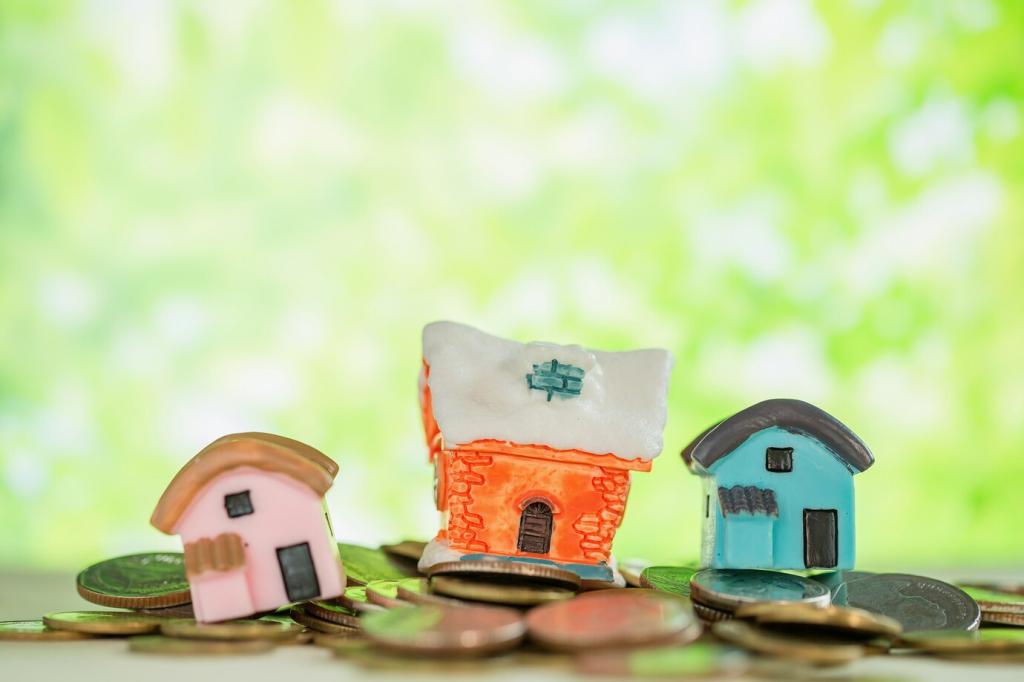Today’s Theme: Cost-Effective Eco-Friendly Practices for Everyday Life
Welcome! Today we’re diving into Cost-Effective Eco-Friendly Practices for Everyday Life—practical moves that lighten your footprint and your bills. Explore approachable ideas, share your own wins, and subscribe for weekly, wallet-friendly green inspiration.


Small Changes, Big Impact at Home
Switch to LED bulbs that typically use about seventy-five percent less energy, and pair them with power strips to slay standby loads. Nudge your thermostat a couple degrees, stretch daylight with open curtains, and unplug idle chargers to trim invisible costs.
Small Changes, Big Impact at Home
Install faucet aerators, fix tiny leaks quickly, and shorten showers by one song. Capture clean rinse water for plants, run full dishwasher loads, and wash laundry cold to protect fabrics, lower energy use, and keep utility bills sensibly small.
Budget-Friendly Kitchen Sustainability
Meal planning that prevents waste and saves cash
Sketch a flexible three-day plan around what you already own, not what a recipe demands. Use a “use-first” box in the fridge, batch-cook grains, and match perishable produce with quick, low-energy meals that practically cancel midweek takeout temptations.
Leftover alchemy: turning scraps into flavor
Save herb stems, onion skins, and bones for stock; stale bread becomes crunchy croutons or puddings. Scrape jars with a spatula, pickle wilting veggies, and fold yesterday’s roasted vegetables into frittatas, fried rice, or tacos for effortless, satisfying dinners.
Low-cost composting for beginners
Start with a lidded bucket, newspaper, and brown scraps like dried leaves. Mix kitchen greens with browns, keep it slightly damp, and stir occasionally. Even a small balcony bin transforms waste into nutrient-rich soil that helps herbs thrive beautifully.
Thrift and swap as a default setting
Browse thrift stores, neighborhood groups, and library share shelves before buying new. Many essentials—mugs, planters, tools, even furniture—appear regularly. Host a swap night with friends and trade duplicates for needed items, keeping budgets balanced and landfills quieter.
Packaging-light choices on a budget
Choose larger formats of staples, favor paper or refillable options, and bring sturdy containers to bulk sections when allowed. A simple list curbs impulse buys, while refills for soap, detergent, and cleaners reduce costs and weekly recycling volume noticeably.
Buy it once, fix it twice
Pick repairable goods with standard screws, spare parts, and clear instructions. Learn a few fixes—patching fabric, re-gluing soles, tightening wobbly chairs. Longevity beats frequent replacements, saving money, time, and the emissions hidden in constant shipping and packaging.
The five-block rule: walk or cycle whenever possible
Decide that any trip five blocks or less becomes a walk or quick ride. You gain fresh air, skip parking frustration, and discover local gems, all while spending exactly zero dollars and zero fuel on short, routine errands.
Public transit hacks for comfort and savings
Bundle errands into one route, use weekly passes when frequency rises, and keep a small “transit kit” with a book and water bottle. Off-peak travel often means better seats, calmer rides, and more reliable schedules that simplify your planning.
DIY Cleaners That Actually Work
Fill a jar with citrus peels, cover with white vinegar, and steep two weeks. Strain, dilute one-to-one with water, and add to a spray bottle. It tackles countertops and glass inexpensively, with a bright scent that lifts everyday chores.

Community and Habit-Building
Joining or starting a local sharing library
Search for tool libraries, seed swaps, or community fridges nearby. If none exist, start a simple spreadsheet with neighbors. Sharing rarely used items like ladders and specialty cookware saves money for everyone and encourages deeper community connections.
Accountability challenges that stay fun
Pick a theme—no-plastic week, lights-out evenings, or a leftovers-only lunch streak—and keep score together. Prizes can be handmade notes, garden cuttings, or recipes. Tag us with your challenge highlights and help others try the same simple experiments.
Turning family time into green time
Make Saturday mornings a quick neighborhood cleanup or bike-tune session. Give kids small roles—battery hunting for the recycling jar, sticker charts for shorter showers. When everyone contributes, savings grow, pride rises, and habits feel like shared victories.
Tracking Progress and Staying Motivated
Track three numbers: monthly electricity usage, food waste weight in a small container, and gallons of fuel or transit trips. Watch trends, not perfection. Celebrate plateaus as proof your new baseline is already more efficient and sustainable.
Tracking Progress and Staying Motivated
I once boiled a full kettle for one mug, everyday. Measuring showed the waste instantly. Filling only what I needed cut time, saved noticeable energy, and reminded me that tiny choices, repeated, quietly reshape bills and environmental impact.
Tracking Progress and Staying Motivated
Comment with the one habit you will try this week, and tell us how it goes. Subscribe for fresh, practical tips, and invite a friend to join—because shared momentum makes cost-effective eco-friendly living easier and much more joyful.
